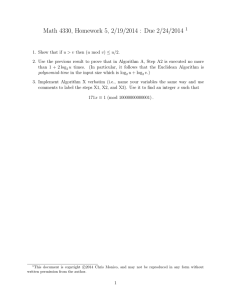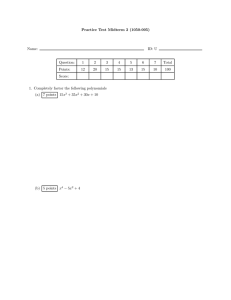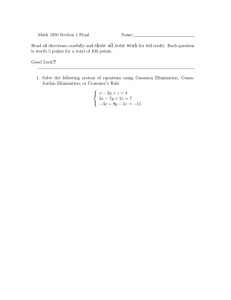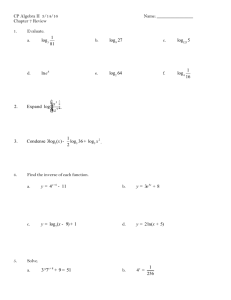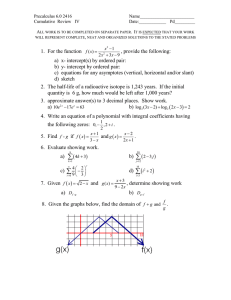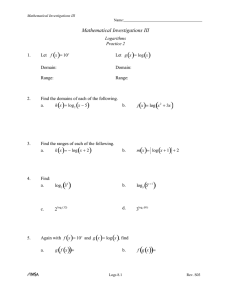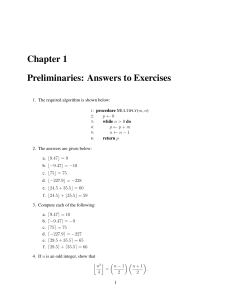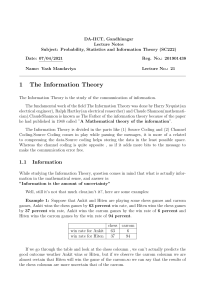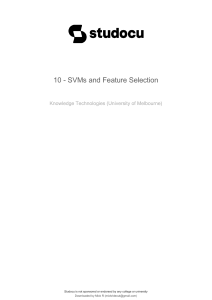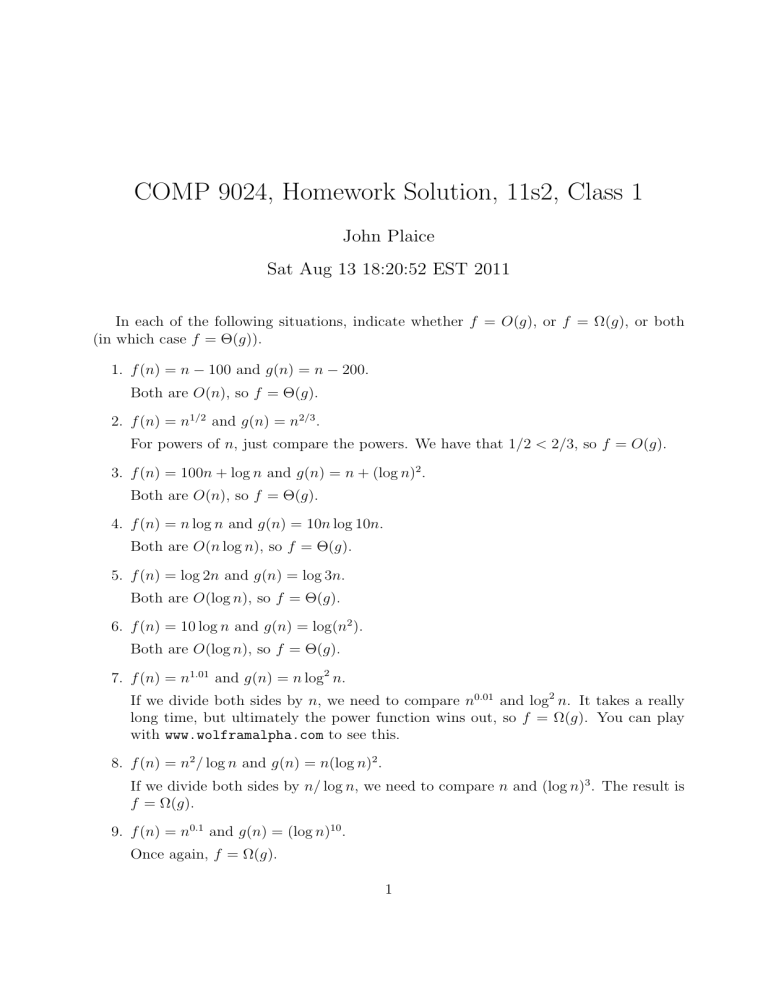
COMP 9024, Homework Solution, 11s2, Class 1 John Plaice Sat Aug 13 18:20:52 EST 2011 In each of the following situations, indicate whether f = O(g), or f = Ω(g), or both (in which case f = Θ(g)). 1. f (n) = n − 100 and g(n) = n − 200. Both are O(n), so f = Θ(g). 2. f (n) = n1/2 and g(n) = n2/3 . For powers of n, just compare the powers. We have that 1/2 < 2/3, so f = O(g). 3. f (n) = 100n + log n and g(n) = n + (log n)2 . Both are O(n), so f = Θ(g). 4. f (n) = n log n and g(n) = 10n log 10n. Both are O(n log n), so f = Θ(g). 5. f (n) = log 2n and g(n) = log 3n. Both are O(log n), so f = Θ(g). 6. f (n) = 10 log n and g(n) = log(n2 ). Both are O(log n), so f = Θ(g). 7. f (n) = n1.01 and g(n) = n log2 n. If we divide both sides by n, we need to compare n0.01 and log2 n. It takes a really long time, but ultimately the power function wins out, so f = Ω(g). You can play with www.wolframalpha.com to see this. 8. f (n) = n2 / log n and g(n) = n(log n)2 . If we divide both sides by n/ log n, we need to compare n and (log n)3 . The result is f = Ω(g). 9. f (n) = n0.1 and g(n) = (log n)10 . Once again, f = Ω(g). 1 10. f (n) = (log n)log n and g(n) = n/ log n. The function f (n) = nlog log n , so f = Ω(g). √ 11. f (n) = n and g(n) = (log n)3 . Once again, f = Ω(g). 12. f (n) = n1/2 and g(n) = 5log2 n . The function g(n) = nlog2 5 ≈ n2.32 , so f = O(g). 13. f (n) = n2n and g(n) = 3n . Here, f = O(g). 14. f (n) = 2n and g(n) = 2n+1 . Here, f = Θ(g). 15. f (n) = n! and g(n) = 2n . Lookup “factorial” in www.wikipedia.org, and you will find that n! > Hence f = Ω(g). √ 2πn( ne )n . 2 16. f (n) = (log n)log n and g(n) = 2(log2 n) . The function f (n) = nlog log n and the function g(n) = (2log2 n )log2 n = nlog2 n . Hence f = O(g). P 17. f (n) = ni=1 ik and g(n) = nk+1 . We have that f = Θ(g). It is easy to prove that f = O(g), but harder to prove that f = Θ(g). These exercises came from the book Algorithms, by S. Dasgupta, C. H. Papadimitriou and U.V. Vazirani (freely available on the Web). 2

